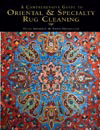A Look Inside Japan’s Efforts to Recycle Carpet Tile

The goal of the Japan Recycle Carpet Association (JRCA) and its stakeholders with the full backing of the Japanese government, is to increase recycled carpet tiles’ market share from 20% to 50% by 2025, significantly reducing the environmental impact.
Photo: kckate16 / Getty Images

Used carpet tiles are being inspected and sorted at one of the Refinverse facilities in Japan.
Photo: Refinverse.

Used carpet tiles start their breakdown journey here.
Photo: Refinverse.
.jpg?t=1719249559&width=1080)
Extra carpet tiles are neatly stored for later processing.
Photo: Refinverse

Carpet tiles going through the delamination process.
Photo: Refinverse.

A gravity sorter is used to fill bags with recycled PVC powder.
Photo: Refinverse.

The PVC powder.
Photo: Refinverse.

Recycled carpet tile backing.
Photo: Refinverse.



.jpg?t=1719249559&width=150)




At the end of 2023, the Japan Recycle Carpet Association (JRCA) and its stakeholders announced efforts to promote the adoption of recycled carpet tile in support of a circular economy. With the full backing of the Japanese government, the JRCA’s goal is to increase recycled carpet tiles’ market share from 20% to 50% by 2025, significantly reducing the environmental impact.
The JRCA is responsible for creating the standards by which carpet tile is to be recycled and for promoting these standards. For those who achieve these standards, a certification will be issued. Ultimately, the JRCA will monitor greenhouse gas emissions and take those into consideration when implementing and promoting the standards. Currently, the Japanese government seeks to reduce greenhouse gas emissions by 46% by 2030 (compared to 2013 levels), according to the JRCA.
Japanese carpet tile manufacturers and others within the industry committed to carpet-to-carpet circular recycling started the movement around 2002 with carpet tile recycling taking off in 2006. Since then, the JRCA reports that more than 56 million square meters (approximately 67 million square yards) of carpet tiles have been recycled compared to the roughly 25 million square meters (approximately 30 million square yards) produced annually.
The carpet tiles can endure six to seven cycles before they are no longer viable for recycling, according to JRCA Chairman Chuji Kondo. Additionally, the average life cycle of carpet tile in Japan is around seven years with the tiles remaining in use for three to 10 years.
Those involved in the effort, led by the JRCA, have a strategy in place that starts with used carpet tile collection and concludes with end-of-life product collection. Carpet tile recycling is currently being handled by only one company, Refinverse.
Company members serving on the JRCA board alongside Kondo are: Akira Ochi, vice-chairman, JRCA and CEO, Refinverse Group; Koji Naito, board member, JRCA and general manager, Sangetsu; and Yozo Endo, board member, JRCA and general manager, Kawashima Selkon; and Akihide Mizuno, board member, JRCA, and general manager, Suminoe.
Refinverse Group, Inc. is the umbrella corporation under which falls Refinverse, GMS, Connection and Refine Material—a group of companies that support various aspects of the waste to usable materials process. Refinverse takes industrial waste such as carpet tile, automotive airbags and fishing nets, treats it, converts it and sells the raw materials.
Currently, Refinverse has two collection/conversion sites that procure carpet tile constructed from nylon and PVC, separate it and turn it into raw materials that are then sold to legacy manufacturing companies like Sumitomo Corporation and Suminoe Textile Co. who turn them into a wide variety of finished products.
The Process
Used carpet tile is procured through GMS. Refinverse’s proprietary technology separates the pile layer from the backing. The pile is turned into raw material pellets used in steelmaking and the backing into powder which is then sold through Refine Material to Japanese manufacturers to be used in recycled carpet tiles.
The Supporting Manufacturers
The JRCA reports that by 2006, there were more than 100 companies in the collection network. By 2011, that number doubled and in 2023, the total came to 389.
Kawashima Selkon Textiles Co. is a fabric manufacturer founded in 1843 that produces area rugs, curtains, upholstery fabric, wall coverings, flooring, broadloom carpet and carpet tile. It is heavily involved in the hospitality, corporate, healthcare and institutional markets. Kawashima was among the first group of companies to sell recycled carpet tiles.
Sangetsu Corporation, founded in 1849, manufactures both PVC sheet and tile products, and broadloom carpet. According to the JRCA report, Sangetsu began selling recycled carpet tile in 2008.
Getting its start in the cotton cloth business, Japan Carpet Co., Ltd. began manufacturing woven carpet in 1955 and Axeminster carpet in 1966, according to the company profile. Carpet tile production was later introduced in 1989. In 2002, the company achieved certification as a carpet tile factory according to Japanese industrial standards.
Suminoe Group was founded in 1883 and specializes in the manufacturing of curtains and carpets. Currently, it produces automotive carpet with sound absorptive properties as well as recycled carpet tiles.
Founded in 1919, Tajima started manufacturing PVC flooring in 1953 and carpet tile in 1959, according to its most recent company profile. Tajima produces carpet tile with sound absorptive properties for education and corporate spaces. In 2020, it established the Tajima Holdings Co.
Starting as a cotton machine business in 1921, Yamasan began producing carpet in 1959. The firm manufactures textiles, chemicals, coatings, residential broadloom carpet and recycled commercial non-PVC carpet tile for the corporate, education, healthcare and hospitality sectors. Additionally, it produces automotive carpet, sports carpet, artificial turf, rugs designed for underfloor heating, walk-off mats, area rugs, building materials and exhibition flooring. In 2014, Yamasan purchased a Card-Monroe Corp. 1/10G Loop Color Point Infinity machine, and in 2015, it introduced another CMC machine—a 1/10G Loop High-Speed Tufting machine.
The Goal
The goal, according to the JRCA, is to minimize waste, reduce greenhouse gas emissions and eventually reach 100% recycling.
“The members are all environmentally friendly and conscious companies,” Kondo said. “They are not only using recycled PVC but also other recycled materials as well, such as Econyl yarns.” However, as these companies work together to support a circular business strategy, Refinverse’s ultimate goal, according to Kondo, is to “expand their recycling system into the U.S.”
The Carpet America Recovery Effort (CARE) is focused on implementing market-based solutions to increase the recycling and diversion of post-consumer carpets from landfills. The organization also keeps an eye on global technology advancements like the recycling technologies that the JRCA is promoting.
"This is an intriguing development, but it's too early to judge applicability to the U.S. marketplace," said CARE Executive Director Bob Peoples. “I am eager to learn more about this technology.”
Looking for a reprint of this article?
From high-res PDFs to custom plaques, order your copy today!







.jpg?t=1690771780)





.jpg)



